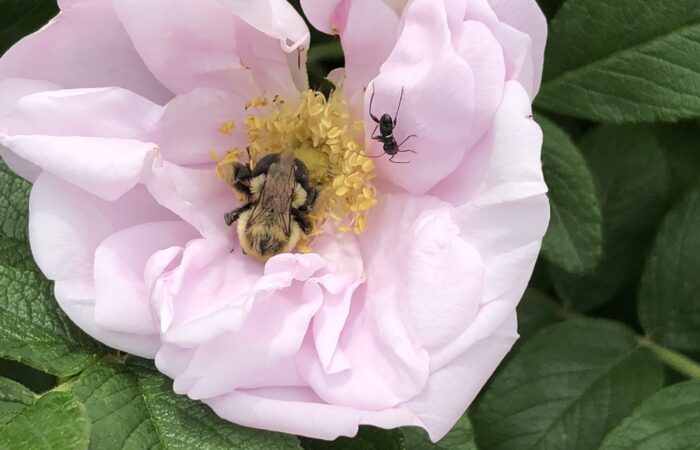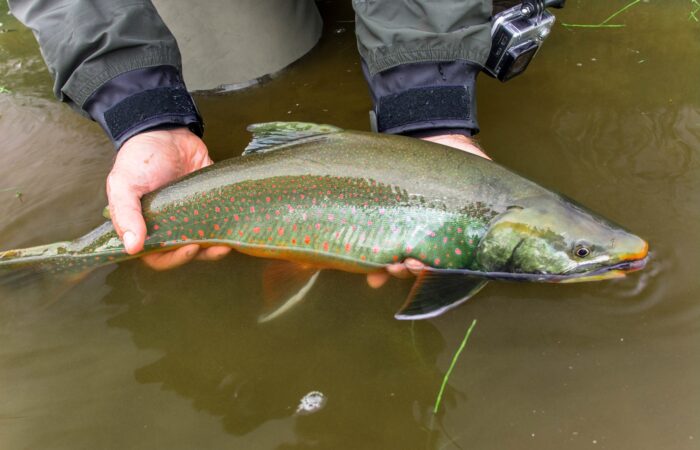Matthew Dickerson's books include works of spiritual theology and Christian apologetics as well as historical fiction, fantasy literature, explorations of the writings of C.S.Lewis and J.R.R.Tolkien, and books about trout fishing, fly fishing, rivers, and ecology. His recent books include: Disciple Making in a Culture of Power, Comfort, and Fear and The Voices of Rivers: Reflections on Places Wild and Almost Wild. He was a 2017 artist-in-residence at Glacier National Park. He lives in Vermont with his wife, dog, and cat, not far from three married sons, and is an active member of Memorial Baptist Church. Matthew is also a professor of computer science at Middlebury College in Vermont.

Removing Dragon Skins
Although our outer selves (our visible actions and audible words) reflect the reality of our (invisible) inner lives, our inner selves are not transformed simply by focusing on superficial appearances. Transformation requires getting at the heart, which only God can do. Yet, though the transformational work can only be done by God, and not by our own willpower, we are called both to surrender to that work and to participate in it, which may prove painful as well as joyful. In the imagery of C.S. Lewis, it took the claws of Aslan to remove Eustace’s dragon skin.
Read Post
Removing Dragon Skins
Although our outer selves (our visible actions and audible words) reflect the reality of our (invisible) inner lives, our inner selves are not transformed simply by focusing on superficial appearances. Transformation requires getting at the heart, which only God can do. Yet, though the transformational work can only be done by God, and not by our own willpower, we are called both to surrender to that work and to participate in it, which may prove painful as well as joyful. In the imagery of C.S. Lewis, it took the claws of Aslan to remove Eustace’s dragon skin.
Read Post
Dragonish Hearts Grow Dragon Skins
Who we are on the inside will ultimately be revealed on the outside. As with Eustace in C.S. Lewis’s Narnia story _The Voyage of the Dawn Treader_, if our inner selves hide the heart of a dragon, we will eventually also have the skin of a dragon. To be transformed into the image of Christ, it is not enough to focus on our outer dragon skin; we need the inner work that will transform our inner selves.
Read Post
Hope as Noun, Verb, and Person
Christian hope is both a verb and a noun: something we do, and something we possess. Even more importantly, our hope is a person. Christian hope is not the same as optimism. It does not deny the reality of sorrow, loss, failure, and suffering. Yet hope is rooted in the person and work of Jesus Christ and what was accomplished on the cross. It comes from faith that Christ continues to work in this world, and because of Christ’s work, our own work is not in vain.
Read Post
Hope That is Seen
Hope does not depend on circumstances nor it is the same as optimism. True hope is rooted in the person of Jesus Christ, and should be evident to the world, prompting those around us to ask for reasons. Christian hope lived out even when circumstances give little reason for optimism may be one of the most powerful witnesses a Christian has.
Read Post
Delight in Creation
God can and does speak to us through creation. Sometimes that speaking comes in specific messages or reminders, like Jesus’ lesson from the lilies that we need not worry. But often our consideration of creation works in us wordlessly, as we simply enjoy the presence and goodness of our creator God through his created world.
Read Post
The Extravagant Beauty of Creation
Jesus as well as the ancient Hebrew poets who gave us the psalms take time to admire that lavish beauty of creation, and to see it as a meaningful part of God’s plan—and a pointer back toward the beauty and creativity of God himself. Jesus exhorts us to do so also.
Read Post
Creation Made to Frolic
Even as God created a world in which work is good, God also wove play and delight into the fabric of creation. Surely play and delight is good for me also, and it even reflects something of the nature of the God whom we worship who fashioned all creation. We worship a God who delights in play, and who made a universe where work is balanced not only by rest, but by the need to frolic.
Read Post
Considering the Lilies
All creation reveals the Creator and the Creator’s glory. When we read Jesus’ exhortation to “consider the lilies” or “look at the birds of the air”, before jumping to the particular interpretation of such consideration that he drew in his Sermon on the Mount, we would do well to take time to actually consider the lilies—and also the mountains, trees, rivers, and clouds as well as the wild creatures of the skies, the hills, and the oceans.
Read Post
Theology with Humility
Practicing humility toward both Scripture and toward fellow believers means acknowledging that we might not be right about everything, that we don’t have to be right about everything, and that even when we are right about something, our unity with other believers is more important than having others acknowledge that we’re right. Humility also allows us to learn from others, even if we don’t agree on all points.
Read Post
A Body Divided
God calls his people to be united, telling us through his word that the unity of those who follow Christ will lead others to believe in Him. And yet Christians have used the very teachings of the New Testament that call us to unity—and our differing understandings of those teachings—as reasons to argue and quarrel and become divided.
Read Post
American(ism) Idol
Good things can become idols if we put them above God. Even when Jesus raised the dead, many of the religious leaders of his day seemed more concerned with their nation, their power and freedoms, and their temple than with the God they claimed to worship in that temple. We are continually called to let go of our idols and put God first.
Read Post
American Idol(s)
Even good things can become idols. Asking how we spend our time, how we spend our money, and where we get our significance can be good indicators of what we truly serve and worship. Jesus’ reminder that we cannot serve two masters is a call to let go of the idols in our lives.
Read Post
The Promised Liberation of Creation
The suffering of nature—what Paul refers to as creation—is the result of sin: of human’s not caring for creation as God intended. All creation suffers along with God’s image-bearing human children. The good news is that God’s redemptive plan includes not only bringing his image-bearing children into freedom and glory, liberating us from our bondage to sin, but also God liberating all of creation.
Read Post
Keeping Creation
God called Aaron, brother of Moses, to bless the people of Israel, saying “The Lord bless you and keep you.” God called Adam to care for creation in a similar way: exercising our human stewardship over the created world in a way that reflects the loving, caring, blessing we seek from God for ourselves, and which is demonstrated in the servanthood of Christ.
Read Post